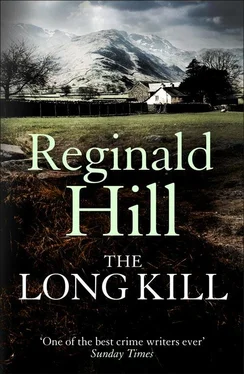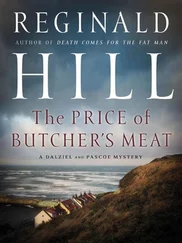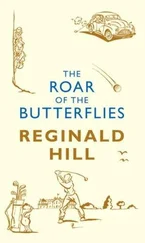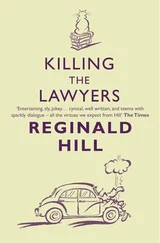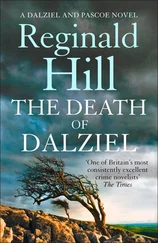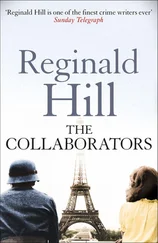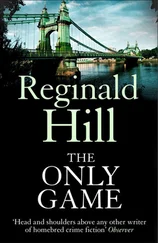The first time he ever saw Jacob, he had been lying on his bed.
He swam out of a drug-filled sleep into a world of physical pain and then burst through that into a world of mental and emotional agony, more bitter by far, and finally opened his eyes in desperate search of a physical image to blot out the horrors in his mind.
And there was Jacob.
Just a man in a dark double-breasted suit totally unsuitable for the hot, humid climate of South-East Asia, yet there was no sign of discomfort as he sat by the bed, still as a lizard on a wall, his squashed-up face wearing its customary expression of weary puzzlement at the foolishness on display before him.
‘You’re awake, are you?’ he asked. ‘Can you move?’
He tried. The pain in his body shifted around a bit but didn’t get much worse until he tried to speak. Then he realized that the left side of his face must have been badly cut. A long strip of plaster covered perhaps a dozen stitches.
‘Where’s Nguyet?’ he managed to whisper.
The dark-suited man shrugged.
‘I should think she’s dead, wouldn’t you, Mr Collins?’
‘I saw her, she was alive …’ His voice tailed off as he recalled his last glimpse of that golden body, supine among a forest of dusty boots.
‘The civil police say she was a taxi-girl picked up under Madame Nhu’s morality laws. The secret police say she was a communist sympathizer fomenting unrest at the university. The Special Force say she was a Buddhist saboteur. They can’t all be right, can they? But they all agree that she died resisting arrest, and I’m afraid they can’t all be wrong either.’
‘It’s not true! She can’t be dead!’
His voice spiralled high, but not out of conviction. The other did not even argue.
‘And you,’ he said. ‘You’d have been dead too, wouldn’t you? If those Americans hadn’t happened to come along. What did you think you were doing?’
The tone was one of polite curiosity. He closed his eyes and let the memories come rushing back. Flung out into the street in front of Nguyet’s apartment, he had staggered half-demented with rage and terror into the nearest bar. Here he had emptied his wallet in front of the barman and demanded a gun. Saigon, under President Diem’s repressive regime, was a city where it was said you could get anything for money. The barman said nothing but removed the money and five minutes later a newspaper-wrapped package was put into his hands. It was not a bar used much by Westerners, but as he left, two Americans came in. They were attached to their Embassy’s Cultural and Educational Mission and Jaysmith’s British Council teaching contract at the university had brought them in touch. He ignored their greeting and rushed past them, tearing at the newspaper package. Alarmed by his appearance, the Americans followed.
As he arrived back at Nguyet’s apartment block, the street door opened and the dog-faced colonel and his entourage came out.
Screaming with hate he had ripped the last of the paper from the package and leapt forward brandishing the ancient revolver it contained. Thrusting the weapon into the colonel’s face, he squeezed the trigger. It fell off. A soldier smashed the useless weapon from his hand. Another drove him to the ground with a savage blow to the head. Then they were all at him with rifle butts and boots. Only the arrival of the Americans had saved him from being beaten to death in the street.
‘I was going to kill that bastard,’ he said with savage hate. ‘I still am.’
‘Are you? This is the man, I believe, isn’t it?’
A photograph was held in front of him. The dog-face of the colonel stared down at him. He nodded, unable to speak.
‘Colonel Tai. A very nasty piece of work. Directly answerable to Tran Van Khiem who, as you may know, is Madame Nhu’s brother and head of anti-subversion forces. And you’re going to kill him, are you? You’ll have to be quick, Mr Collins.’
‘What do you mean?’
The dark-suited man pointed at an envelope by the bed.
‘You’re persona non grata, Mr Collins. There’s a plane ticket in there, valid for this evening’s flight only. If you’re not on the flight, you will be arrested on a charge of attempted murder, subversion, sabotage, it hardly matters what as you’re not likely to survive arrest, are you? I should catch that plane if I were you, even if it means crawling to the airport, naked.’
The superior tone got to him at last.
‘Who the hell are you?’ he demanded. ‘Are you official? From the Embassy? You’ve got the look of one of those smooth bastards!’
The man laughed drily, apparently genuinely amused by the comment.
‘A smooth bastard, am I? Then you’d better call me Jacob, hadn’t you, Mr Collins? And am I official? No, I’m so unofficial, I scarcely exist, do I? Come here a moment, will you?’
He went to the window. Laboriously the injured man climbed out of bed and followed. His flat was in a small block on a side street off the Boulevard Charner, one of Saigon’s main thoroughfares, choked now as nearly always during the day with cycles, motor-scooters, cars and trucks. The man who called himself Jacob pointed to the intersection.
‘At precisely six o’clock this afternoon, Colonel Tai will be going down the boulevard in his jeep. He will be held up there by a slight accident, right at that corner. How far is it? About fifty yards, would you say? An easy shot for a man who was his regimental and university rifle champion, wouldn’t you say?’
‘How the hell do you know that? Who are you?’
‘Nobody. Jacob if you like, but I prefer nobody. What do you think, Mr Collins? Could you pull a trigger? One that wouldn’t fall off this time?’
He didn’t have to think.
‘Oh yes,’ he said. ‘I could pull a trigger.’
Jacob contemplated him for a moment.
‘Yes, I think you could,’ he said softly. ‘Goodbye, Mr Collins.’
He left so abruptly that there was no time to ask further questions.
An hour later there was a gentle tap at the door.
When he opened it, there was no one there. But against the wall stood a long cardboard box with the name and trademark of a well-known brand of vacuum cleaner on it.
He took it into the flat and opened it.
It contained a Lee-Enfield .303 rifle, old, but beautifully maintained. The magazine was full.
He went to the window and looked out. Fifty yards. From this distance he could not miss. The thought of squeezing the trigger and seeing Tai’s head burst open in a shower of blood and brains filled him with such a passion of hate that he had to sit down till the weakness in his legs passed away. He had a bottle of whisky in his case, bought at Heathrow eight months earlier and still unopened.
He opened it now and drank from the bottle. It did him good. He drank again. After a while the drink calmed the wildness in him and his mind began to function again. He knew beyond all doubt he was going to kill Tai, but he now let his thoughts dwell on the mysterious Jacob. Saigon in the autumn of 1963 was awash with rumour. Self-immolation by Buddhist monks; acts of sabotage by God knows who; arrest without trial by Government forces; the sacking of the Saigon pagodas; all these had fuelled the perennial rumour of an imminent anti-Diem coup. Perhaps most significant of all was the withdrawal of American support, signalled in a variety of ways.
Tai’s assassination by a Westerner would be just another such signal. That the assassin was English, not American, would mean nothing to the native populace, but it would enable the Americans to claim total innocence. Jacob was probably paying off some debt to the CIA.
But for the full effect of the assassination to be felt it would have to be known that the killer was a Westerner. And there was only one way of advertising that.
Читать дальше
